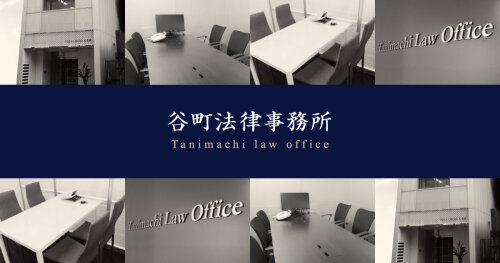Best Corporate Governance Lawyers in Japan
Share your needs with us, get contacted by law firms.
Free. Takes 2 min.
Or refine your search by selecting a city:
List of the best lawyers in Japan
About Corporate Governance Law in Japan
Corporate governance refers to the system of rules, practices, and processes by which companies are directed and controlled. In Japan, corporate governance has evolved considerably, especially in recent decades as more attention has been given to transparency, accountability, and the protection of shareholders' interests. Japanese law sets out the responsibilities and structures of company boards and management, and emphasizes the importance of balancing the interests of various stakeholders, including shareholders, employees, and customers. Key reforms, such as the introduction of the Corporate Governance Code, aim to enhance the long-term sustainability and value creation of Japanese businesses.
Why You May Need a Lawyer
Legal advice is invaluable in many corporate governance situations, including:
- Establishing or restructuring the board of directors in accordance with legal requirements
- Ensuring compliance with stock exchange rules and regulatory standards
- Dealing with disputes between shareholders or between shareholders and officers
- Navigating mergers, acquisitions, or substantial corporate transactions
- Reviewing internal controls and risk management practices
- Adopting or revising internal governance policies in line with Japan's Corporate Governance Code
- Responding to investigations or penalties from regulatory authorities
- Conducting independent audits and investigations related to corporate conduct
Local Laws Overview
Several Japanese laws and regulations shape corporate governance practices:
- Companies Act (Kaisha Hou): The foundation for all corporate activities in Japan. It specifies company structures, director and auditor responsibilities, and general meeting protocols.
- Corporate Governance Code: A set of guidelines issued by the Tokyo Stock Exchange to promote sustainable corporate growth and medium- to long-term company value. Listed companies are expected to comply or explain deviations.
- Financial Instruments and Exchange Act: Regulates securities offering, financial reporting, and disclosure obligations for listed companies.
- Stock Exchange Listing Rules: Companies listed on exchanges must adhere to requirements on board composition, disclosure, independence of outside directors, and other governance standards.
- Relevant guidelines from the Financial Services Agency (FSA) and Ministry of Justice: These guide interpretation and implementation of corporate governance rules.
Frequently Asked Questions
What is the role of the board of directors under Japanese law?
The board of directors oversees company management, sets strategic direction, appoints executives, and supervises risk management and compliance. Japanese law mandates minimum board structures and sometimes requires outside or independent directors.
Are companies in Japan required to have outside or independent directors?
Yes, the Corporate Governance Code encourages listed companies to appoint at least two independent outside directors. The Companies Act also provides frameworks for companies to adopt different governance structures involving committees or auditors.
What is the Corporate Governance Code and who must follow it?
The Corporate Governance Code is a set of principles and best practices for listed companies in Japan, overseen by the Tokyo Stock Exchange. Compliance is not mandatory, but companies must explain any deviations to investors.
How are shareholder rights protected in Japan?
Shareholders hold legal rights to vote, inspect records, and seek remedies against unlawful actions by management. Key rights and procedures are detailed in the Companies Act and enforced by courts and regulatory authorities.
What internal controls are companies expected to maintain?
Japanese companies must establish effective internal control systems covering risk management, compliance programs, accurate financial reporting, and prevention of corporate misconduct.
How have recent reforms impacted Japanese corporate governance?
Recent reforms focus on improving board independence, gender diversity, transparency in executive compensation, and enhanced disclosure practices, aiming to strengthen investor confidence and global competitiveness.
What is the role of statutory auditors (kansayaku)?
Statutory auditors monitor directors' actions for legality, review internal controls, and report violations. In some company structures, audit and supervisory committee members fulfill oversight roles instead.
Can foreign shareholders participate in Japanese corporate governance?
Yes, foreign shareholders generally have the same rights as domestic shareholders, including voting and initiating legal action, subject to procedures set in the corporate charter and applicable law.
What are the penalties for violations of corporate governance laws?
Penalties range from fines and administrative orders to criminal charges, director disqualification, and compensation claims by shareholders. Regulatory authorities or courts enforce these remedies depending on severity.
How can companies stay updated with changes in corporate governance law?
Companies should monitor updates from regulatory authorities, seek legal advice, attend industry seminars, and regularly review internal policies for compliance with new regulations or guidelines.
Additional Resources
If you need more information or guidance on corporate governance in Japan, consider the following resources:
- Financial Services Agency (FSA): The main regulator for corporate and financial institutions, offering guidelines, news updates, and compliance tools
- Tokyo Stock Exchange: Publishes the Corporate Governance Code, regulatory policies, and guidance for listed companies
- Ministry of Justice: Provides access to the Companies Act and related legal materials
- Japan Institute of Directors: A professional organization supporting director education and corporate governance best practices
- Local Bar Associations: These provide referrals and information on lawyers experienced in corporate law
Next Steps
If you need legal assistance with corporate governance in Japan, follow these steps:
- Identify the specifics of your issue, such as board disputes, compliance matters, or shareholder concerns
- Gather relevant documents, including your company’s articles of incorporation, meeting minutes, and organizational charts
- Consult a lawyer with expertise in Japanese corporate law to assess your position and outline potential strategies
- Consider if you need ongoing compliance support or one-time advice for a particular transaction or dispute
- Stay informed about regulatory developments and consider training for executives or board members in best governance practices
Lawzana helps you find the best lawyers and law firms in Japan through a curated and pre-screened list of qualified legal professionals. Our platform offers rankings and detailed profiles of attorneys and law firms, allowing you to compare based on practice areas, including Corporate Governance, experience, and client feedback.
Each profile includes a description of the firm's areas of practice, client reviews, team members and partners, year of establishment, spoken languages, office locations, contact information, social media presence, and any published articles or resources. Most firms on our platform speak English and are experienced in both local and international legal matters.
Get a quote from top-rated law firms in Japan — quickly, securely, and without unnecessary hassle.
Disclaimer:
The information provided on this page is for general informational purposes only and does not constitute legal advice. While we strive to ensure the accuracy and relevance of the content, legal information may change over time, and interpretations of the law can vary. You should always consult with a qualified legal professional for advice specific to your situation.
We disclaim all liability for actions taken or not taken based on the content of this page. If you believe any information is incorrect or outdated, please contact us, and we will review and update it where appropriate.
Browse corporate governance law firms by city in Japan
Refine your search by selecting a city.
















